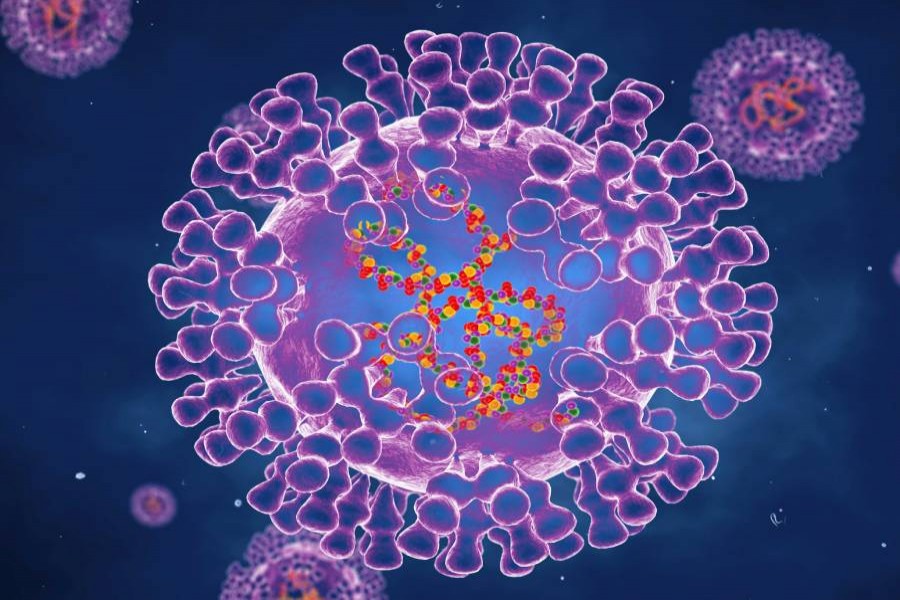The World Health Organisation (WHO) says 100 confirmed or suspected cases of monkeypox, which is a zoonotic disease as it can pass from animals to humans, have been detected in Europe. Cases have also been detected in North America and Australia. But the disease is not endemic in any of these countries. The first-ever human case of monkeypox was a child from the Democratic Republic of Congo (DRC), or Congo-Kinshasa in 1970. Later, similar monkeypox infections were reported on different occasions from different countries of West and Central Africa. Those include, for instance, Cameroon, Central African Republic, Cote d'Ivoire, Congo-Kinshasa, Gabon, Nigeria, Liberia, Congo-Brazzaville and Sierra Leone.
However, the first recent case was reported from the UK in the first week of this month, May 7, to be exact. But the patient in question is learnt to have travelled to Nigeria, a West African country and is suspected of having contracted it from there. Scientists believe the monkeypox originated in the tropical rainforests of West and Central Africa. However, they are still clueless about the exact source, or what is known as the 'natural reservoir, of the monkeypox virus.
But what worries epidemiologists is that 20 such monkeypox cases have so far been detected in the UK. Meanwhile, public health agencies of Germany, Spain, Portugal, Belgium, France, Netherlands, Italy, Sweden and Israel have also confirmed their cases of monkeypox.
Is the viral disease then spreading among the population undetected? In that case, the question may arise if the original monkeypox virus has mutated into a new variant that is evading detection. Or has the virus found conditions, say, the time and the place, perfect for it spread like this? Experts in the field are investigating if that is the case.
One wonders why viral infections like Covid-19 or the latest one, the monkeypox, can invade the West so fast. Maybe it is because westerners are frequent travellers or that they have better awareness levels as well as advanced diagnostic tools to detect any new kind of virus as soon as it appears in their midst. So, there is reason to worry as the level of preparedness against any new kind of infection in this part of the world leaves much to be desired. Should we then be concerned? Yes, concerned we should be, but not alarmed. For, so far, the cases are found to be rather mild and can be cured within two to four weeks.
The virus can enter human body through broken skin, eyes, nose, mouth or respiratory tracts. But it requires the virus to transmit through respiratory droplets after prolonged face-to-face contact between humans. The virus can also enter human body from the bites and scratches of animals.
The disease symptoms include fever, headache, swelling, back pain, muscle pain etc. Rashes usually develop on the face and then spread to other parts of the body. Palm of the hand and sole of the foot can have these severely itching rashes within three days following the fever. After two to four weeks the infection clears up on its own.
Though scientists do not think monkeypox is going to trigger another pandemic like the Covid 19, the possibility of a major outbreak cannot be ruled out altogether. In fact, monkeypox is a far less virulent cousin of small pox and is a member of the subset, Orthopoxvirus, of the family of viruses called Poxviridae. This subset, or genus, includes the viruses, namely, variola virus (the notorious small pox pathogen), vaccina virus (used to make small pox vaccine) and cow pox virus.
Interestingly, small pox vaccine has been found to be effective against monkeypox virus in 85 per cent of the cases.
As the infection passes from infected animal to people and from people to people in close contact, such contacts should be avoided. And with the recent experience of Covid-19, the people here already know how to deal with the new virus if the country is ever visited by monkeypox.


